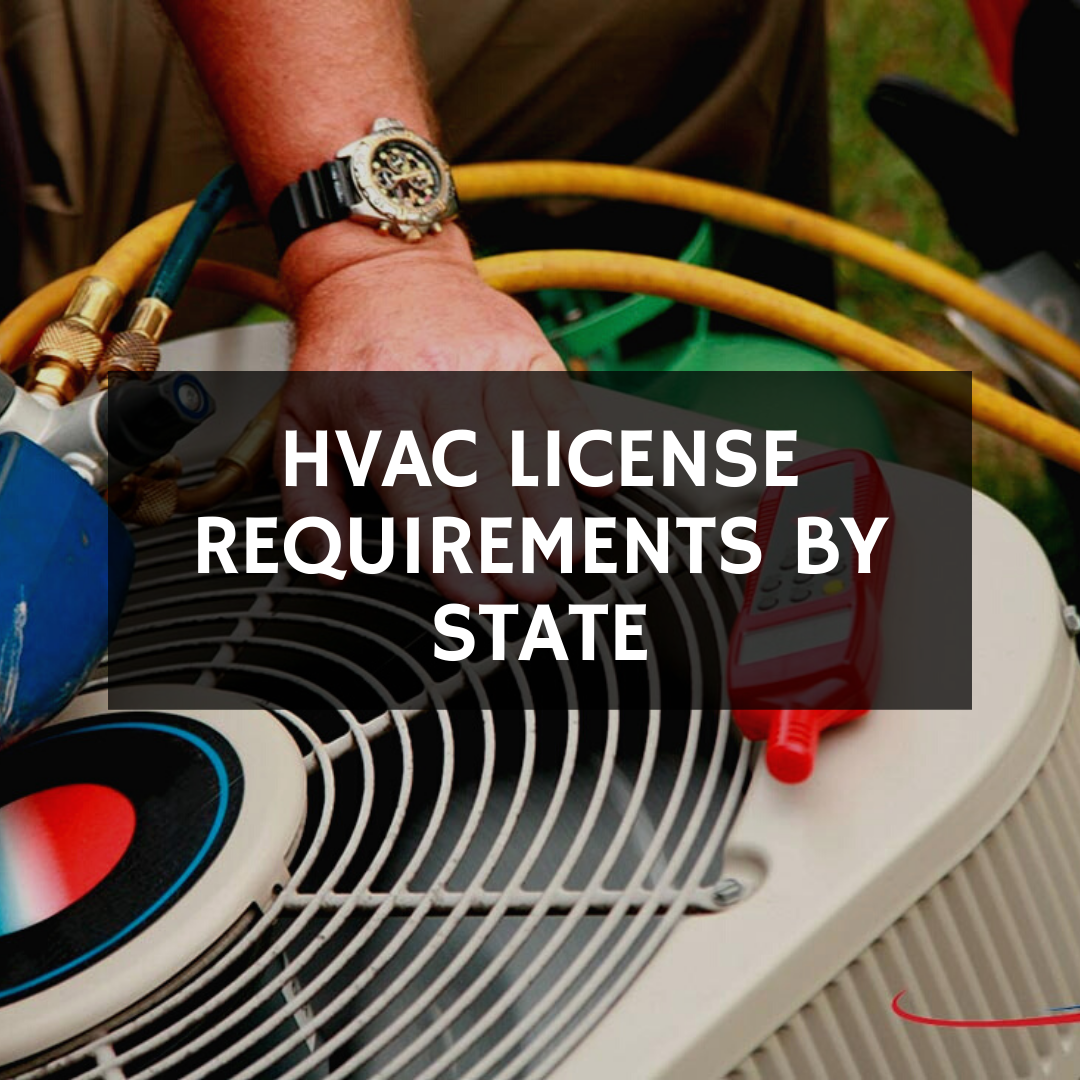
Do you know your state’s HVAC license requirements? HVAC licenses can vary wildly from state to state, all with different rules and requirements. Some states may reciprocate licenses from other specific states. Meanwhile, other states may not require a license at all— or they may require a license locally. To ease the confusion, we’ve compiled a full list of HVAC license requirements by state.
Why Become Certified
Some states may not have requirements for HVAC licenses. For example, Colorado doesn’t require a state license although it’s possible to become certified through a recognized industry or trade organization.However, it’s generally a good idea to obtain a professional certification even if your state doesn’t require it. Becoming certified gives HVAC businesses a number of competitive advantages, like helping increase sales. When potential clients are choosing a company, certifications can assure them your company has the most qualified technicians to complete a job. This can give clients the final push they need to choose you over a competitor.
HVAC License Requirements by State
Below we’ve collected links to the HVAC licensing authority responsible for each state while working as an HVAC contractor. The information is subject to change.StateCERTIFICATION AUTHORITYAlabamaAlabama State Board of Heating and Air Conditioning ContractorsAlaskaRegulation of Mechanical AdministratorsArizonaArizona Registrar of ContractorsArkansasHeating, Ventilation, Air Conditioning & Refrigeration Licensing BoardCaliforniaContractors State License BoardColoradoState licensing not required. Local licensing may be.ConnecticutDepartment of Consumer ProtectionDelawareDelaware Board of Plumbing, Heating, Ventilation, Air Conditioning and Refrigeration ExaminersDistrict of ColumbiaBoard of Industrial TradesFloridaConstruction Industry Licensing BoardGeorgiaState Construction Industry Licensing BoardHawaiiDepartment of Commerce & Consumer Affairs, Professional and Vocational LicensingIdahoDivision of Building SafetyIllinoisState licensing not required. Local licensing may be.IndianaState licensing not required. Local licensing may be.IowaIowa Plumbing and Mechanical Systems BoardKansasState licensing not required. Local licensing may be.KentuckyPublic Protection Cabinet, Department of Housing, Buildings & ConstructionLouisianaLouisiana State Licensing Board for ContractorsMaineState licensing not required. Local licensing may be.MarylandBoard of Heating, Ventilation, Air Conditioning and Refrigeration ContractorsMassachusettsMassachusetts Department of Public SafetyMichiganMichigan Department of Licensing and Regulatory AffairsMinnesotaDepartment of Labor & IndustryMississippiMississippi State Board of ContractorsMissouriState licensing not required. Local licensing may be.MontanaMontana Department of Labor & IndustryNebraskaDepartment of LaborNevadaState Contractors BoardNew HampshireState licensing not required. Local licensing may be.New JerseyDivision of Consumer AffairsNew MexicoNew Mexico Regulation & Licensing DepartmentNew YorkState licensing not required. Local licensing may be.North CarolinaState Board of Refrigeration ExaminersNorth DakotaSecretary of StateOhioDepartment of CommerceOklahomaOklahoma Construction Industries BoardOregonOregon Construction Contractors BoardPennsylvaniaPennsylvania Department of Labor & IndustryRhode IslandDepartment of Labor and Training, Workforce Regulation and SafetySouth CarolinaResidential Builders CommissionSouth CarolinaContractor’s Licensing BoardSouth DakotaState licensing not required. Local licensing may be.TennesseeBoard for Licensing ContractorsTexasDepartment of Licensing and RegulationUtahDivision of Occupational and Professional LicensingVermontState licensing not required. Local licensing may be.VirginiaDepartment of Professional and Occupational Regulation, Board for ContractorsWashingtonDepartment of Labor & IndustriesWest VirginiaDivision of Labor Contractor LicensingWisconsinLicense, Permit and Registration ServicesWyomingState licensing not required. Local licensing may be.Source: http://www.hvacclasses.org/certification
Additional HVAC Certification Requirements
In addition to state requirements, the EPA requires all HVAC technicians to take an exam for handling refrigerant. The test covers topics like compliance and leak repair requirements in order to protect the environment. Technicians will then receive a Section 608 Technician Certification that lasts for life and doesn’t require renewal.
